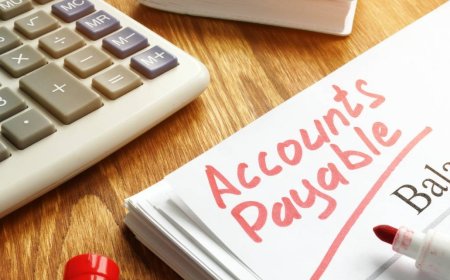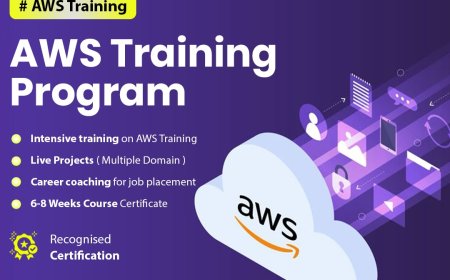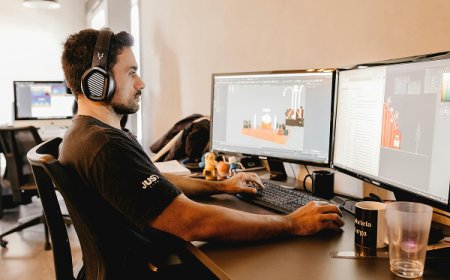Mastering the Game: A Comprehensive Guide to Tournament Poker Training
Tournament poker is an intense, skill-based competition where strategy, discipline, and mental endurance collide. Unlike cash games, tournament poker involves navigating through various blind levels, adapting to opponents, and managing chips as you strive to outlast the field and claim the prize. For players aspiring to go from casual hobbyist to consistent contender, tournament poker training is essential.
With structured training, you can improve your decision-making, read hands better, and develop long-term strategies that maximize your edge. This blog will explore key areas of poker training, including mindset, theory, and practice, to help you elevate your tournament game.
Why Tournament Poker Requires Specific Training
Tournament poker differs significantly from other poker formats. Here's why focused training is necessary:
-
Blind Level Changes: As blinds increase, your strategy must evolve.
-
ICM (Independent Chip Model): Decision-making changes based on payout structure.
-
Stack Size Dynamics: Deep stacks, mid stacks, and short stacks all require different approaches.
-
Survival vs. Aggression: Timing your aggression is crucial to avoid busting early.
-
Field Size & Structure: Adapting to large fields versus small sit-n-gos changes your optimal strategy.
Learning to navigate these elements takes more than raw talentit demands disciplined, structured tournament poker training.
The Foundation Understanding Poker Theory
Hand Ranges and Equity
One of the first concepts taught in tournament training is hand range analysis. Knowing what hands to play from each position is essential. A sound understanding of equityhow often your hand will win against an opponents rangeguides profitable decisions.
Positional Awareness
Position is power in poker. Being in position means acting after your opponent, which gives you critical information. Training teaches you how to widen your range in late position and tighten up early on.
Pot Odds and Implied Odds
Youll also learn mathematical fundamentals such as pot odds (the ratio of the current size of the pot to the cost of a contemplated call) and implied odds (how much you expect to win if you hit your hand).
Strategic Phases of Tournament Play
Early Stage Set the Foundation
Early in the tournament, the blinds are low, and stacks are deep. Training focuses on:
-
Playing tight and aggressively.
-
Avoiding high-variance confrontations.
-
Accumulating chips without unnecessary risk.
Middle Stage Adjust and Accumulate
As the blinds grow, so does the pressure. In this stage, your training should emphasize:
-
Exploiting weaker players.
-
Recognizing stack-to-pot ratios.
-
Applying pressure on medium stacks.
Bubble Play Survival and Stealth
The bubble is the period right before players reach the money. Training during this phase is about:
-
Leveraging your stack size.
-
Attacking scared money.
-
Avoiding unnecessary all-ins if youre close to a payout.
Final Table Master the Endgame
Training for final table play is critical. ICM becomes a dominating factor. Focus areas include:
-
Short-handed play adjustments.
-
Heads-up strategy.
-
Pressure exploitation.
The Importance of Mental Training
Your mental game is just as important as your technical skills. Tournaments are long and grueling. Training your mindset helps with:
-
Emotional Control: Staying calm during bad beats.
-
Focus: Maintaining attention for hours.
-
Confidence: Trusting your training and decisions.
Many top pros incorporate mindfulness, meditation, and performance coaching into their tournament preparation.
Tools for Effective Tournament Poker Training
Here are key tools used by serious players:
-
Poker Software: Tools like PokerTracker, Holdem Manager, and GTO solvers help analyze hands.
-
Equity Calculators: Programs like Equilab let you run hand simulations to understand matchups.
-
Training Platforms: Sites like Run It Once, Upswing Poker, and PokerCoaching.com offer video lessons and quizzes.
-
Coaching: One-on-one or group coaching can fast-track improvement.
-
Hand Review Groups: Learning from peers helps you see different perspectives.
Practical Drills to Boost Your Tournament Skills
Consistency in practice is key. Here are some training exercises:
-
Play and Review: Record your sessions and review them later to spot leaks.
-
Range Memorization: Use flashcards or apps to internalize opening ranges.
-
ICM Practice: Use ICM calculators to simulate end-game scenarios.
-
Bubble Simulations: Practice hands with a focus on ICM and stack pressures.
Common Mistakes Tournament Players Make
Training also involves unlearning bad habits. Watch out for:
-
Overvaluing Hands: Dont overplay top pair in multi-way pots.
-
Ignoring Stack Sizes: Not adjusting to short stacks or deep stacks is a huge leak.
-
Chasing Losses: Playing emotionally leads to poor decisions.
-
Not Adapting: Sticking to a rigid style wont work against skilled opponents.
A structured training regimen will help you avoid these pitfalls.
Building a Tournament Poker Training Routine
To become a consistent winner, build a schedule that includes:
-
Study Time: Dedicate a few hours weekly to watching videos, reading books, or solving hands.
-
Play Time: Apply what youve learned by playing in online or live tournaments.
-
Review Time: Set aside time after every session to analyze key hands.
-
Mental Training: Work on your focus and tilt control regularly.
Final Thoughts:
Tournament poker is not just a game of chanceit's a game of skill, patience, and strategy. With the right tournament poker training, you can transform your game from average to elite. Whether you're just starting or aiming for the final table of a major event, continuous learning and disciplined practice will give you the competitive edge you need.


































